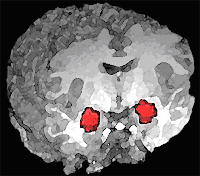Emotional Abuse: Harsh and Abusive Words Can be Worse Than Physical Abuse
Some abusers are very good at their game. They mix you up to the point you fall into their trap without even knowing it. Many have two sides - being abusive and in a sharp turn, being kind and affectionate and sometimes for long periods. You couldn't possibly believe, this person who is kind and affectionate, could be an abuser. Surely, they just had a bad day. You pass it off and give understanding to their bad day - only it isn't just one bad day. You may hear the harsh and abusive words infrequently, which leaves you to believe even more, that you aren't possibly being abused.Focus on emotional abuse
Emotional abuse can come on so slowly that you aren't aware you are being abused. No one has hit you. There are no wounds or scars. No one has done anything blatantly obvious. You try to unravel the words you have heard and the negative treatment toward you. You aren't sure you deserved this or not. Something feels off, but you can'tdecipher exactly what. You may begin to blame yourself. You begin to question yourself. Your confidence gets to an all-time low...
In Working Together to Safeguard Children, the Department of Health defines emotional abuse as: ‘the persistent emotional ill-treatment of a child such as to cause severe and persistent adverse effects on the child’s emotional development.’ The report goes on to state: ‘It may involve conveying to children that they are worthless or unloved, inadequate, or valued only insofar as they meet the needs of another person. It may feature age or developmentally inappropriate expectations being imposed on children. It may involve causing children frequently to feel frightened or in danger, or the exploitation or corruption of children.’This is amplified in the Children and Young People on Child Protection Registers report in 2001: ‘Because it is invisible, emotional abuse is the most insidious and under-recognised form of child abuse.
The child who experiences emotional abuse presents a range of behaviour, from extreme passivity and over-compliance to extreme aggression and rage. The child may:
Emotional Abuseappear very anxious or depressed avoid doing things with other children behave much younger than his or her age behave like an adult, eg a ‘little mother’ lag in physical, emotional and intellectual development soil or wet the bed
The Heart of Parenting: Raising an Emotionally Intelligent Child (http://eqi.org/gottman.htm)Minimizing is a less extreme form of denial. When minimizing, the abuser may not deny that a particular event occurred, but they question the recipient’s emotional experience or reaction to an event. Statements such as “You’re too sensitive,” “You’re exaggerating,” or “You’re blowing this out of proportion” all suggest that the recipient’s emotions and perceptions are faulty and not to be trusted. Trivializing, which occurs when the abuser suggests that what you have done or communicated is inconsequential or unimportant, is a more subtle form of minimizing. Denying and minimizing can be particularly damaging. In addition to lowering self-esteem and creating conflict, the invalidation of reality, feelings, and experiences can eventually lead you to question and mistrust your own perceptions and emotional experience.
"Much of today's popular advice to parents ignores the world of emotions. Instead, it relies on child-rearing theories that address the children's misbehavior, but disregard the feelings that underlie that misbehavior."
"The ultimate goal of raising children should not be simply to have an obedient and compliant child." p 16
** if you want to label something, label your feelings. (sph)
Love by itself isn't enough. p 16
He dedicates the book to Haim Ginott.
When a child is emotional, it is a ideal time for bonding.
Poor emotional coaches:
1. Dismissing parents, who disregard, ignore, or trivialize children's negative emotions (what I would call invalidating parents- sph)
2. Disapproving parents, who are critical of their children's negative emotions.
3. Laissez-faire parents, who accept their children's emotions and empathize with them, but fail to offer guidance or set limits on their children's behavior.
[Also, lazy parents like those who use distraction like bribing, tickling (sph)]
see example on p 23 of the actual book
sph comment - I would say of the three, the first two do much more damage to the child/teen.




















